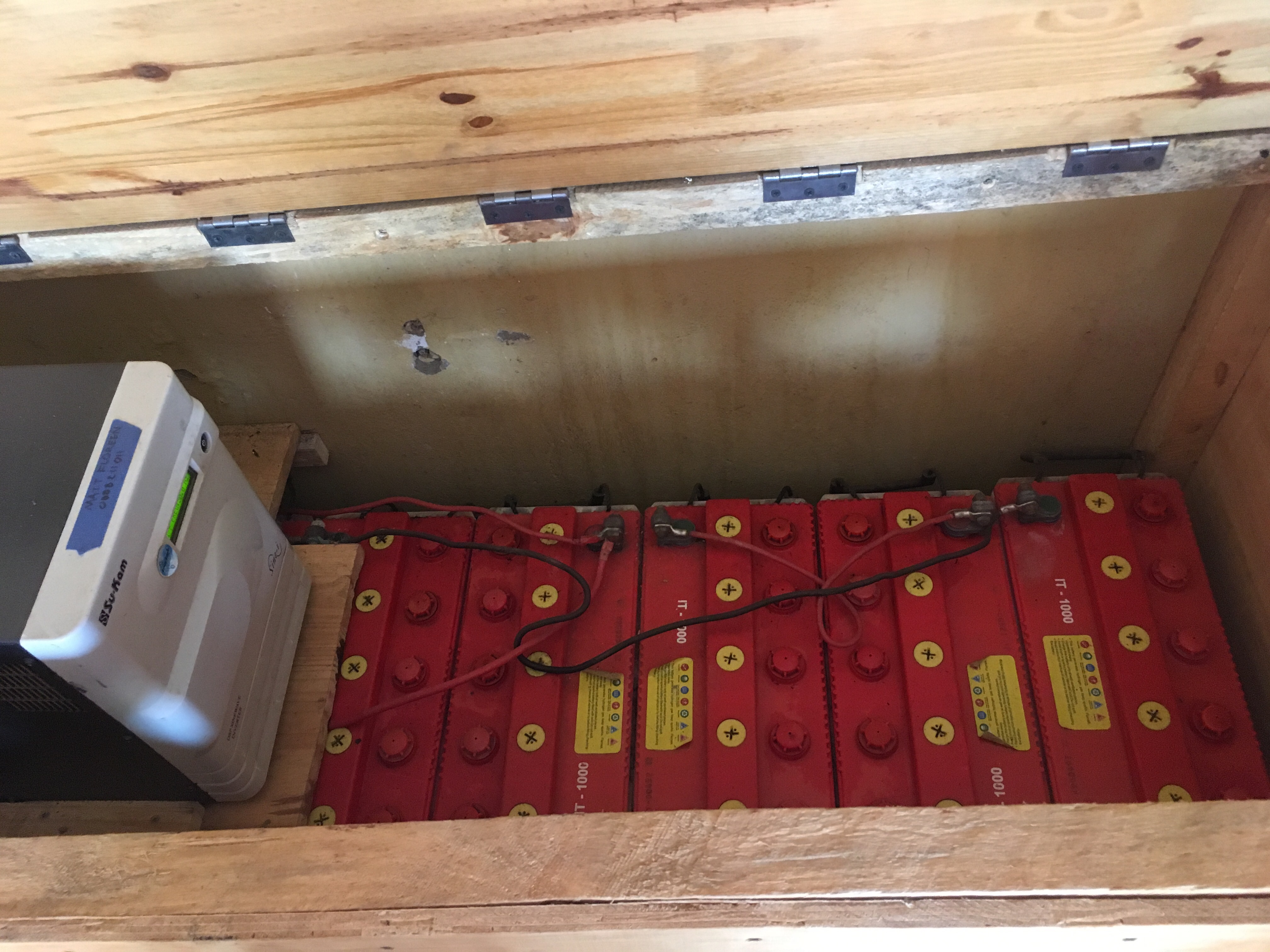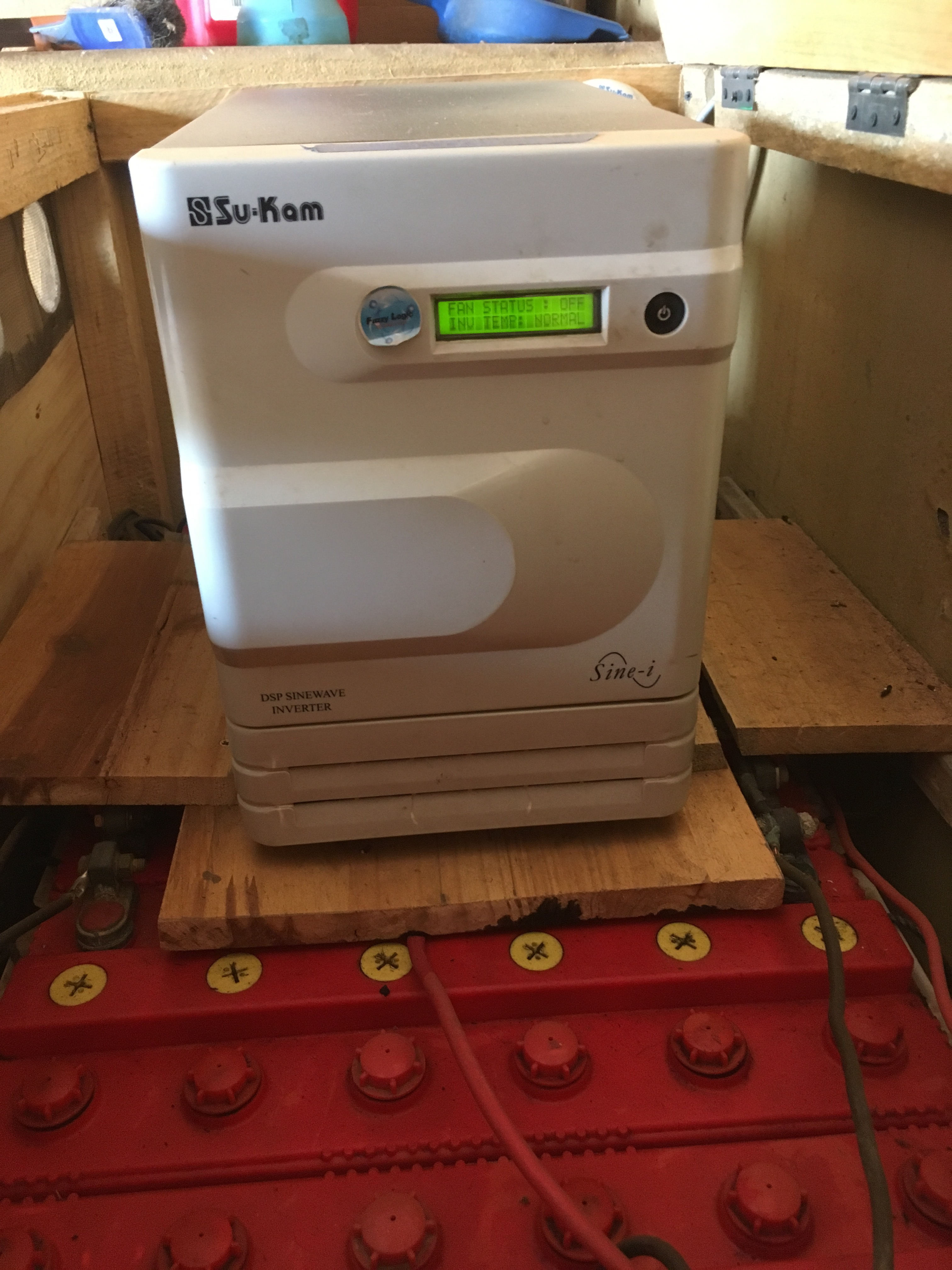Electricity is an ever-present issue here in Malawi. Last year the hydroelectric production was so low by the time the rains came that we were down to about only 4 hours of electricity per day. May I remind you, we live in the capital city, not a rural village. It was a bit rough.

But over the years, we’ve become somewhat accustomed to power outages. We have had generators and put some great candle sconces down the halls. We’ve had a series of emergency lights too, but the first way I usually know the power is out is if the time display on my microwave is out. No little green numbers means no power. But isn’t this a cool microwave? I mean, how many people out there have a mirrored surface on their microwave? There wasn’t a lot of selection, and I had considered the mirror surface a drawback of this model, but I’ve since come to be good friends with it. It has taken the place of a mirror in the hall, letting me do a quick check to make sure I’m presentable as I run to get the door or the gate. It’s super-helpful to have a mirror in your kitchen!

Why is the microwave my first indicator? Because these days, pretty much everything else still works when the power goes off! Over a year ago, thankfully before last year’s extreme power cuts, we invested in an inverter system. A guy was selling the batteries at a ridiculously low price, so we jumped at the chance. I’m so glad we did!
An inverter system is basically battery back-up for your whole house. Well, whatever circuits you run through it. Originally we prioritized all the circuits related to productivity and the ability to sleep through tropical summer nights: bedside lamps, a couple sockets for fans and charging computers, and the internet router. Once we realized what a great system we had gotten, we added on one light per room, the refrigerator, and the deep freeze. The items we intentionally left off are the microwave, kettle, water heaters, and hall lights. The heating elements draw too much power, and the hall lights … well, we just like the ambiance of candles down the hall!
 Our system has 8 deep cycle batteries and the control unit, which switches over to battery power so seamlessly that it doesn’t even knock us off the internet!
Our system has 8 deep cycle batteries and the control unit, which switches over to battery power so seamlessly that it doesn’t even knock us off the internet! 
The whole system lives in a wooden box that Matt built in our garage. Besides being one of the nicest back-up systems I know, the box is also a great place to hang out!

We will get lots of use out of this inverter in the coming year, I’m sure. We are just entering “blackout season,” and we have had 6-9 hour blackouts every day this week. Those 20 hour blackouts are coming, and 4 hours a day is not enough to recharge all those batteries. We’re working on a solution for that … stay tuned!
Wow… (again) I love reading about your life in Malawi. Thanks. Keep it up. I experienced a black out last April while at the Kopp’s house – even battery failed. Last resort – the generator, but my, what a noise!!!